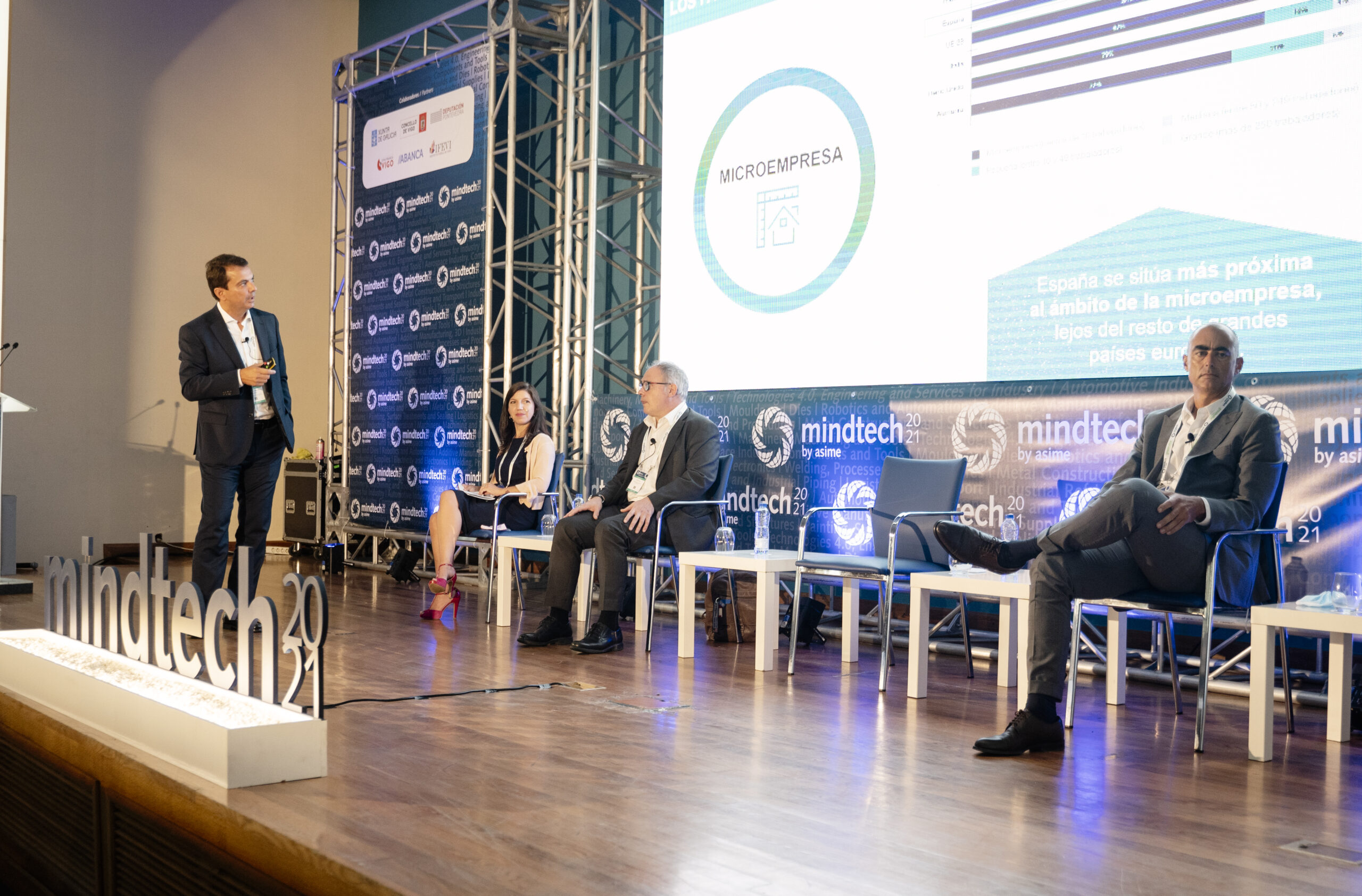Leading company in innovation and industrial automation, with extensive experience in production processes, establishing digitalisation and technology as the basis of its operations.
What will Spain 5.0 be like?
Let’s imagine a Spain in which industry makes an economic, social and cultural leap forward. In which existing technology, and that which is yet to come, is placed at the service of people to improve the welfare of workers and consumers. In which more and better jobs are created and contribute to the sustainability of our society. This will be Spain 5.0.
And how can it be achieved?
First, through a State Pact for industry. This will allow it to be strengthened, increasing its competitiveness, flexibility and efficiency. All of this will contribute to achieving the 18% of GDP that we all want Spain to become an industrial powerhouse over the next decade. Another of the keys to this new Industry 5.0 is data management through data capture and subsequent analysis. Thanks to immediate communication between machines and the cloud or the industrial edge, this information can be analysed by predictive applications to anticipate and accelerate decision-making.
It is time, therefore, to harness the power of data for the benefit of production in our factories. This communication should be made easier thanks to the development of Wifi6 and industrial 5G. This new communication standard will be up to 100 times faster and its economic impact on industrial sectors could reach 1% of industrial GDP by 2030.
What measures should be implemented?
To summarise this roadmap, measures should be implemented in the short, medium and long term. In the short term, a clear and coordinated strategy should be defined and the digital transformation should begin in the best positioned sectors, such as renewable energies, the food industry, the automotive industry and the manufacture of machinery and capital goods. In the medium term, the use and application of some of the most innovative technologies for factory automation and monitoring, such as 5G and the implementation of cybersecurity, must be regulated. In the long term, Spain 5.0 should be based on cutting-edge technologies that allow it to be fully resilient and prepared for the continuous changes in the markets.
And what impact will this have on industry?
If we do our homework properly, the impact of digitalisation on industry and infrastructures will be 4.5 billion euros in 2030, which would lead to industry having a weight in GDP of the 18% already mentioned.
What is the importance of the European Next Generation funds in this process?
The European Next Generation funds are one of the key tools in this process. It is the largest plan ever financed by the budget and represents an unprecedented opportunity.
At Siemens we are aware of this scenario and we have set to work to help Spain become a European leader in technology in sectors such as food, automobiles and shipbuilding, among others. In all these projects we will contribute our cutting-edge technologies such as the Digital Twin, Big Data, Artificial Intelligence, the Industrial Edge and cybersecurity services with the aim of guaranteeing the competitiveness of these sectors and successfully facing their future.
